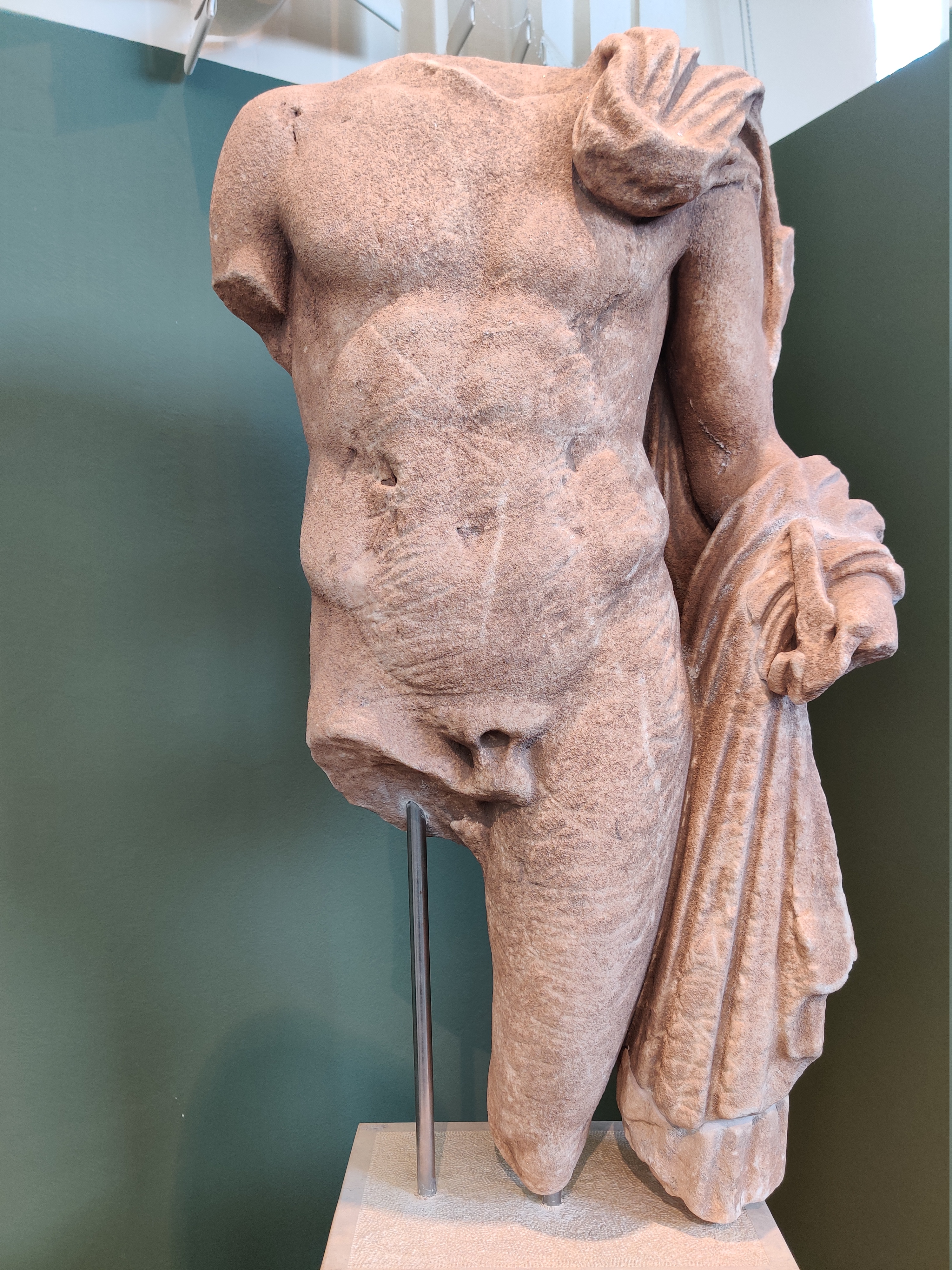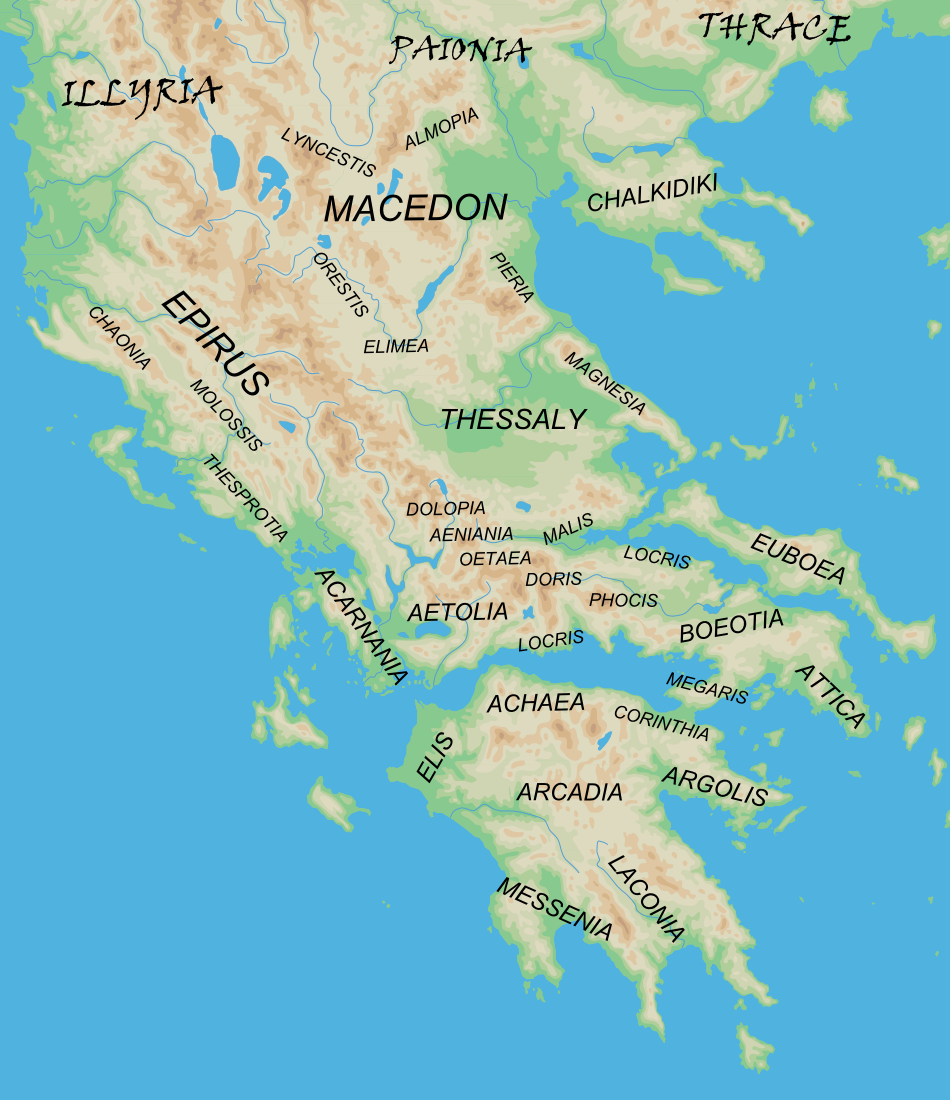|
Polemocrates (physician)
In Greek mythology, Polemocrates () was a physician, and son of Machaon and grandson of Asclepius, god of health. He had a sanctuary, at the village of Eua in Argolis Argolis or Argolida ( , ; , in ancient Greek and Katharevousa) is one of the regional units of Greece. It is part of the modern regions of Greece, region of Peloponnese (region), Peloponnese, situated in the eastern part of the Peloponnese penin ... and was honoured there as a god or hero of the healing art. Pausanias, 2.38.6 References {{DEFAULTSORT:Polemocrates Mythological Greek physicians Ancient Argolis Asclepius Health deities ... [...More Info...] [...Related Items...] OR: [Wikipedia] [Google] [Baidu] |
Greek Mythology
Greek mythology is the body of myths originally told by the Ancient Greece, ancient Greeks, and a genre of ancient Greek folklore, today absorbed alongside Roman mythology into the broader designation of classical mythology. These stories concern the ancient Greek religion's view of the Cosmogony, origin and Cosmology#Metaphysical cosmology, nature of the world; the lives and activities of List of Greek deities, deities, Greek hero cult, heroes, and List of Greek mythological creatures, mythological creatures; and the origins and significance of the ancient Greeks' cult (religious practice), cult and ritual practices. Modern scholars study the myths to shed light on the religious and political institutions of ancient Greece, and to better understand the nature of mythmaking itself. The Greek myths were initially propagated in an oral tradition, oral-poetic tradition most likely by Minoan civilization, Minoan and Mycenaean Greece, Mycenaean singers starting in the 18th century&n ... [...More Info...] [...Related Items...] OR: [Wikipedia] [Google] [Baidu] |
Machaon (physician)
In Greek mythology, Machaon (; ) was a son of Asclepius; and the older brother of Podalirius. He and his brother led an army from Tricca in the Trojan War on the side of the Greeks. Family Machaon fathered Nicomachus and Gorgasus by Anticleia, daughter of Diocles of Pharae. His other sons were Alexanor, Sphyrus and Polemocrates. According to Diogenes Laertius's '' Lives and Opinions of Eminent Philosophers'', Hermippus, in his book ''On Aristotle,'' places Machaon as the son of Asclepius, father of Nicomachus, and ancestor of Aristotle. Mythology Both Machaon and Podalirius were highly valued surgeons and medics. In the ''Iliad,'' he was wounded and put out of action by Paris. Machaon (or his brother) healed Philoctetes, Telephus and Menelaus, after he sustained an arrow at the hand of Pandarus, during the war. He was also supposed to possess herbs which were bestowed to his father Asclepius by Chiron, the centaur. He was killed by Eurypylus in the tenth year of ... [...More Info...] [...Related Items...] OR: [Wikipedia] [Google] [Baidu] |
Asclepius
Asclepius (; ''Asklēpiós'' ; ) is a hero and god of medicine in ancient Religion in ancient Greece, Greek religion and Greek mythology, mythology. He is the son of Apollo and Coronis (lover of Apollo), Coronis, or Arsinoe (Greek myth), Arsinoe, or of Apollo alone. Asclepius represents the healing aspect of the medical arts; his daughters, the "Asclepiades", are: Hygieia ("Health, Healthiness"), Iaso (from ἴασις "healing, recovering, recuperation", the goddess of recuperation from illness), Aceso (from ἄκεσις "healing", the goddess of the healing process), Aegle (mythology), Aegle (the goddess of good health) and Panacea (the goddess of universal remedy). He has several sons as well. He was associated with the Roman/Etruscan god Vediovis and the Egyptian Imhotep. The rod of Asclepius, a snake-entwined staff similar to the caduceus, remains a symbol of medicine today. Those physicians and attendants who served this god were known as the Therapeutae of Asclepius. ... [...More Info...] [...Related Items...] OR: [Wikipedia] [Google] [Baidu] |
Eua (Greek Toponym)
Eva or Eua () was an ancient village of Cynuria (part of Arcadia in the Peloponnese, Greece), located inland not far from Neris. Pausanias, who visited the region in the 2nd century, on leaving Thyrea, came first to Anthene, next to Neris, and lastly to Eva, which he describes as the largest of the three villages, containing a sanctuary of Polemocrates, son of Machaon, who was honoured here as a god or hero of the healing art. Above these villages was the range of Mount Parnon, where, not far from the sources of the Tanus or Tanaus, the boundaries of the Lacedaemonians, Argives, and Tegeatae joined, and were marked by stone Hermae. This Eva is probably also meant by Stephanus of Byzantium, though he calls it a city of Arcadia. Its site is tentatively associated with an ancient fortification on Teichio ridge above the hamlet of Elliniko (Astros). Excavations in 1980 revealed the ruins of the villa of Herodes Atticus Herodes Atticus (; AD 101–177) was an Athenian rheto ... [...More Info...] [...Related Items...] OR: [Wikipedia] [Google] [Baidu] |
Argolis
Argolis or Argolida ( , ; , in ancient Greek and Katharevousa) is one of the regional units of Greece. It is part of the modern regions of Greece, region of Peloponnese (region), Peloponnese, situated in the eastern part of the Peloponnese peninsula and part of the tripoint area of Argolis, Arcadia (ancient region), Arcadia and Corinthia. Much of the territory of this region is situated in the Argolid Peninsula. Geography Most arable land lies in the central part of Argolis. Its primary agricultural resources are orange (fruit), oranges and olives. Argolis has a coastline on the Saronic Gulf in the northeast and on the Argolic Gulf in the south and southeast. Notable mountains ranges are the Oligyrtos in the northwest, Lyrkeio and Ktenia in the west, and Arachnaio and Didymo (mountain), Didymo in the east. Argolis has land borders with Arcadia (regional unit), Arcadia to the west and southwest, Corinthia to the north, and the Islands (regional unit), Islands regional unit (Tr ... [...More Info...] [...Related Items...] OR: [Wikipedia] [Google] [Baidu] |
Pausanias (geographer)
Pausanias ( ; ; ) was a Greek traveler and geographer of the second century AD. He is famous for his '' Description of Greece'' (, ), a lengthy work that describes ancient Greece from his firsthand observations. ''Description of Greece'' provides crucial information for making links between classical literature and modern archaeology, which is providing evidence of the sites and cultural details he mentions although knowledge of their existence may have become lost or relegated to myth or legend. Biography Nothing is known about Pausanias apart from what historians can piece together from his own writing. However, it is probable that he was born into a Greek family and was probably a native of Lydia in Asia Minor. From until his death around 180, Pausanias travelled throughout the mainland of Greece, writing about various monuments, sacred spaces, and significant geographical sites along the way. In writing his '' Description of Greece'', Pausanias sought to put together ... [...More Info...] [...Related Items...] OR: [Wikipedia] [Google] [Baidu] |
Mythological Greek Physicians
Myth is a genre of folklore consisting primarily of narratives that play a fundamental role in a society. For scholars, this is very different from the vernacular usage of the term "myth" that refers to a belief that is not true. Instead, the veracity of a myth is not a defining criterion. Myths are often endorsed by religious (when they are closely linked to religion or spirituality) and secular authorities. Many societies group their myths, legends, and history together, considering myths and legends to be factual accounts of their remote past. In particular, creation myths take place in a primordial age when the world had not achieved its later form. Origin myths explain how a society's customs, institutions, and taboos were established and sanctified. National myths are narratives about a nation's past that symbolize the nation's values. There is a complex relationship between recital of myths and the enactment of rituals. Etymology The word "myth" comes from Ancient G ... [...More Info...] [...Related Items...] OR: [Wikipedia] [Google] [Baidu] |
Ancient Argolis
The regions of ancient Greece were sub-divisions of the Hellenic world as conceived by the ancient Greeks, shown by their presence in the works of ancient historians and geographers or in surviving legends and myths. Conceptually, there is no clear theme to the structure of these regions. Some, particularly in the #Peloponnese, Peloponnese, can be seen primarily as distinct geo-physical units, defined by physical boundaries such as mountain ranges and rivers. Conversely, the division of #Central Greece, central Greece between #Boeotia, Boeotia, #Phocis, Phocis, #Doris, Doris and the three parts of #Locris, Locris, seems to be attributable to ancient tribal divisions and not major geographical features. Both types of regions retained their identity throughout the Greek Dark Ages and its tumultuous changes in the local population and culture, giving them a less political and more symbolic presence. Other geographical divisions not identified with the aforementioned areas did, howev ... [...More Info...] [...Related Items...] OR: [Wikipedia] [Google] [Baidu] |





